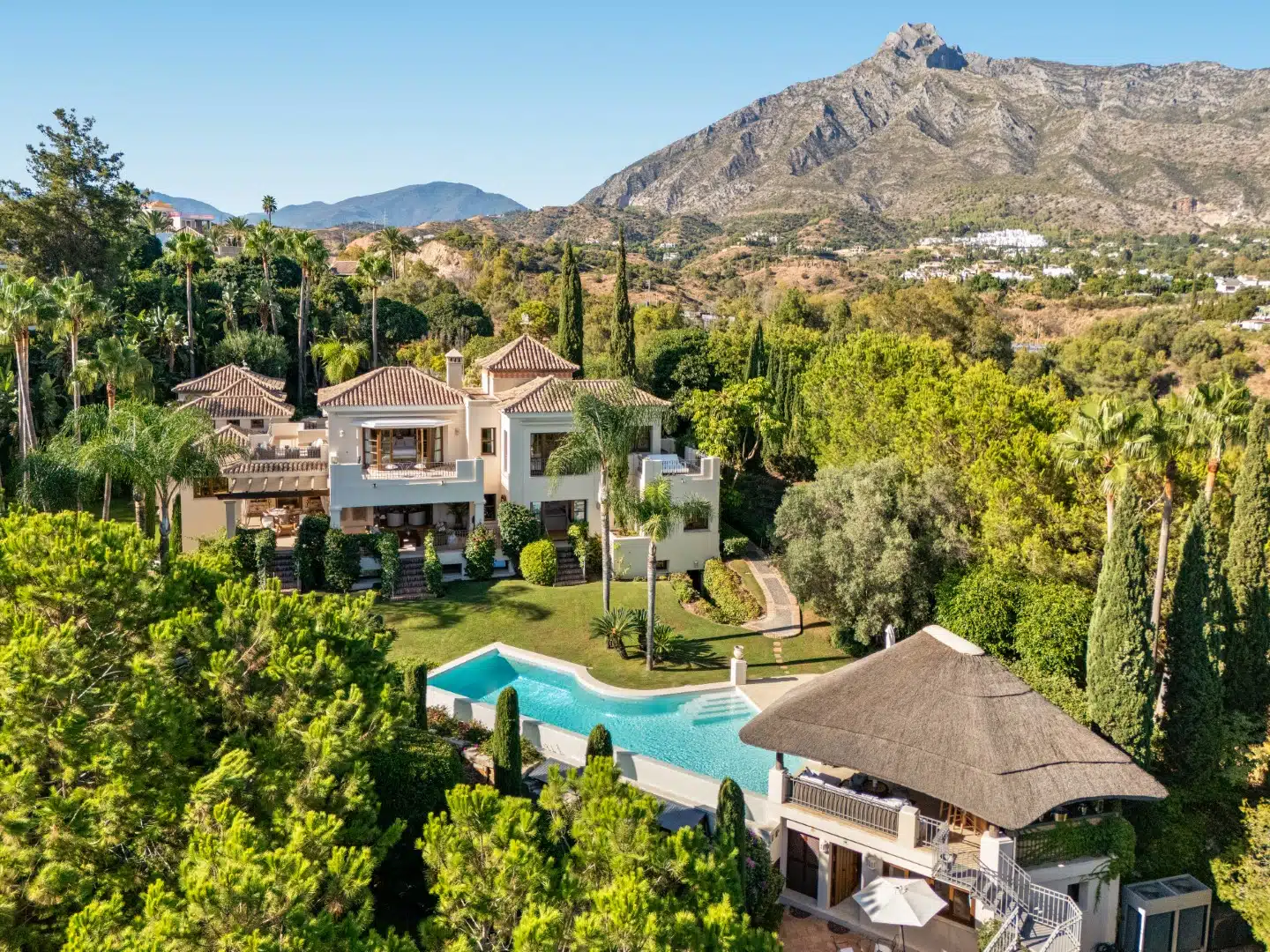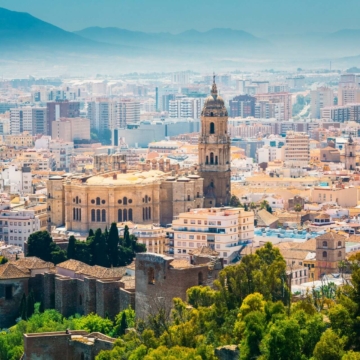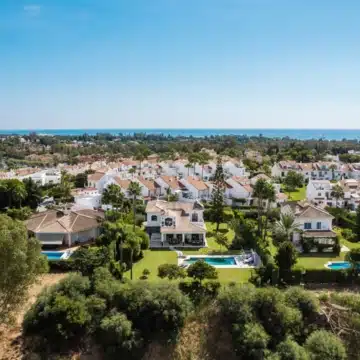looking to buy a home?
Submit this Form and Benefit from our 25 Years' Experience & Strong Local Network.Buying a resale property in Spain can be an excellent investment, particularly for foreign buyers drawn to the sunny lifestyle, rich culture, and strong real estate market. However, the process can be complex if you are not familiar with Spanish laws and procedures.
This guide explains the key steps to buy a resale property in Spain, from getting your NIE number to registering the property.
Process of Buying Resale Property in Spain
Whether you’re looking for a holiday home, a permanent residence, or a smart investment, you will have to go through the following process to acquire a resale property in Spain.
Step 1: Find and Reserve a Property
You can use online portals to check the listing or hire a local real estate agent. Local real estate agents offer key support in buying property. They guide you through the market, find suitable listings online, and connect with sellers to begin negotiations. So, it is advised to hire an agent to find the property that is according for your needs.
Making an Offer:
Once you find a suitable property, your agent submits your offer. If accepted, you’ll sign a Reservation Agreement (Contrato de Reserva) and usually pay a deposit to take the property off the market for about 30 days. While an initial deposit is required, it is not a set amount and can increase for high-value properties.
Make sure the reservation includes:
- Property details
- Price and payment terms
- Deposit amount and conditions
- Seller and buyer obligations
- Timeline for the next steps
Important: The deposit is usually non-refundable, so have a lawyer check the agreement before signing.
Some Important Tips
To expedite the buying process, it is better to complete the following steps.
Hire Professional Help
Buying property in Spain involves several specialists. Having the right team around you is critical for avoiding legal and financial mistakes.
Who You Need:
- Real Estate Lawyer: Handles contracts, verifies the property is legal and debt-free, and ensures your rights are protected.
- Mortgage Advisor: Helps you find the best mortgage deal and explains different loan types.
- Surveyor: Checks the physical condition of the property, especially important for older or rural homes.
- Real Estate Agent: Assists with property searches and negotiations and ensures smooth communication with sellers.
Always choose an independent lawyer, not one recommended by the seller or agent.
Get Your NIE Number
The NIE (Número de Identificación de Extranjero) is a unique ID number every foreign buyer must have to carry out legal and financial transactions in Spain, such as buying property, paying taxes, and setting up utilities.
You can get your NIE in one of three ways:
- In Spain: Apply at a national police station (Comisaría General de Policía) that you can find in all major cities of the country.
- From your home country: Apply through a Spanish consulate.
- Via a lawyer: Many buyers give a local lawyer power of attorney to act on their behalf.
Documents Needed:
- Completed EX-15 application form
- Valid passport (plus copies)
- Proof of purpose (e.g., property reservation or mortgage offer)
- Payment of a small fee (€10)
Want to understand the full process? Read our complete NIE guide.
Open a Spanish Bank Account
While not legally required, opening a local bank account in Spain makes everything easier. It helps reduce transfer fees, speeds up payments, and is useful for paying utilities and taxes once you own the property.
Most banks will ask for:
- Your NIE
- Passport
- Proof of income or employment
- Utility bill from your home address
- Your lawyer can help with this process if needed.
Conduct Due Diligence
This is the most critical stage of the process. Your lawyer must investigate the legal and financial status of the property.
What They Check:
- Land Registry (Nota Simple): Confirms the seller owns the property and lists any debts or legal issues.
- Outstanding Debts: Property taxes (IBI), community fees, and utilities.
- Building Licenses: Ensures that renovations or extensions are legal.
Surveyor Inspection
It’s highly recommended to hire a chartered surveyor to inspect the property, especially if it’s older or located in a rural area, before finalising the purchase. This technical inspection, often called a “snagging list,” helps identify structural problems or hidden defects.
The survey should take place during the due diligence phase, and the findings are usually detailed in a written report with photos and repair suggestions. If major issues are found, buyers can request cost estimates for fixing them.
Importantly, buyers should include a clause in the preliminary contract that outlines what happens if the inspection reveals serious problems. This provides legal protection and flexibility.
Ultimately, the survey gives buyers the chance to renegotiate the price, ask for repairs, or even walk away, if permitted by the contract, without losing their deposit. It’s a great way to avoid future surprises and protect your investment.
Step 2: Sign the Private Purchase Contract
Once due diligence is complete, the next step is signing the Private Purchase Contract (Contrato de Arras). This contract outlines all the terms and includes a 10% deposit.
Key contents:
- Property and seller details
- Purchase price and inventory
- Completion date
- Clauses for penalties if either party backs out
If the buyer withdraws without a valid reason, the deposit is usually lost. If the seller withdraws from the deal, they are required to return double the deposit amount.
Some Important Tips
Plan Your Financing and Budget
The cost of buying a home in Spain is not just the property price. You’ll need an extra 10–15% for taxes and fees.
If you’re a non-resident:
- Spanish banks usually offer 60–70% Loan-to-Value (LTV).
- You must pay at least 30–40% of the property price upfront.
- Mortgage terms are typically 20–25 years, with a max age limit of 70–75.
Interest rates vary:
- Fixed: 2.5%–3.5%
- Variable: Euribor + margin
Mortgage Documents:
- NIE and passport
- Proof of income (payslips, tax returns)
- Bank statements
- Credit report
- Proof of down payment
Understand the Taxes and Fees
Property Transfer Tax (ITP)
Property transfer tax on resale properties in Spain differs depending on the region. In some regions, it is around 10%. However, in the case of Andalusia, the transfer tax is 7% for all resale properties.
This difference can save or cost you thousands, so it is important to choose your region wisely for buying resale properties.
Other Costs
- Notary fees
- Land registry
- Mortgage fees
- Gestoría (Admin Help)
- Legal fees
For a detailed understanding of these taxes and fees, check our guide about What Taxes and Fees can you Expect when buying property in Spain.
Step 3: Final Signing at the Notary
The final step is signing the Public Deed of Sale (Escritura Pública) at the notary’s office. This is when ownership legally changes hands.
The notary will:
- Confirm the identity of both parties
- Check for any debts on the property
- Ensure all taxes and fees are paid
- Issue the official deed
- If you’re getting a mortgage, the mortgage deed is also signed at this point.
Once the documents are signed, you will officially become the legal owner of the property.
Step 4: Post-Purchase Essentials
Property Registration
Your lawyer will submit the signed deed to the Land Registry, confirming you as the official owner. This process usually takes a few weeks.
Utility Transfers
It is important that all utility services, including electricity and water, are transferred into your legal ownership.
Ongoing Costs:
- IBI (local property tax)
- Rubbish collection
- Community fees (for apartments or complexes)
Tip: Set up direct debits to avoid missing any utility or tax payments.
Bonus Tips
- Make a Spanish Will: This helps your heirs avoid legal headaches.
- Hire a tax representative: Especially if you plan to rent the property or are a non-resident.
- Tourist licenses: If you plan to rent short-term, check local laws, as some areas have strict rules.
Conclusion
Buying a resale property in Spain can be a great decision if approached in the right way. While the process may feel complex at first, careful planning, expert legal guidance, and a clear knowledge of the associated costs and steps will help you navigate the process smoothly and will help in buy your ideal home in Spain.










